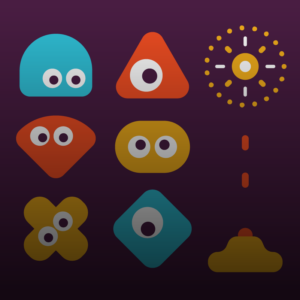Have you heard the news? The age of question-based cognitive assessments is over. At least…that’s what the businesses selling the alternatives want you to think.
Recently, the industry has been inundated with reports that AI has claimed a new victim – traditional question-based cognitive assessments. If true, this development renders your investments a waste. But here’s the thing…
We all know that sensationalism sells. And that’s what those shouting the loudest are counting on. The question is, should you believe them? While their arguments are grounded in truth – their solutions are hiding a much more measured, middle ground. So, we’ve decided to reveal it.
Read on, to discover the truth about AI and ability-based assessments. Within, we explore:
- The current landscape: AI and cognitive assessments
- The real risks of cognitive assessments
- When AI becomes accessible: a glimpse into the future
- 4 ways to resolve the AI issue
- Diverse solutions on the horizon

The current landscape: AI and cognitive assessments
It’s no secret that AI has been making incredible developments recently (we used it to translate our services into 52 languages in a day!). But there’s also a lot of fear-mongering around its capabilities, and what that means for jobs and processes. So, what is AI actually up to?
Already, there are a number of Generative AI tools designed to help job hunters on their way to employment. From tailored responses to questions and applications from Kickresume, to swift and secret answers on video calls from Whisper AI, there are now “cheat tools” for most stages of the process.
And it’s true that plugins can now be developed to answer question-based cognitive assessments.
But does this mean it’s the end of the ability test as we know it?
Does the existence of Kickresume mean you’ll disregard all applications?
Will Whisper AI get rid of video interviews?
The truth is, no. Or at least, not yet.
While these tools are constantly being developed and improved, they currently require a certain skill level to use effectively. For example:
Kickresume is only as good as the information that it gets.
The candidate still needs to do the introspection required to complete your application, they just don’t need to do it multiple times for each new opportunity.
Whisper AI takes ~5 seconds to generate an answer.
To use it effectively, candidates must engage the interviewer, stall for the answer, check it and read it out naturally. These are all desirable soft skills in themselves.
And the same can be said for cognitive assessments.
There isn’t currently an AI tool that can be easily plugged into a question-based assessment. That means, if a candidate does use AI, they’ll already have a deep-level understanding, and the ingenuity to build a plug-in to use it effectively. That sounds like a smart, forward thinker who’d be a great potential candidate, to us!
So, while AI has the capability of answering question-based assessments, it’s not a fatal threat yet. But that doesn’t mean question-based cognitive assessments are risk-free.
The real risks of question-based assessments
While everyone’s arguing over whether question-based cognitive assessments are dead, there’s actually a much bigger question that’s being overlooked. And it’s this…
Are question-based cognitive assessments enough to measure and differentiate between specific cognitive abilities?
The short answer is no. Cognitive ability isn’t as simple as being able to answer a question correctly. And while there are a number of abilities that you can test through question-based assessments, such as:
- Knowledge recall
- Problem-solving
- Logical reasoning
There are others that can’t. So, if you’re relying on one type of test to get this information, you risk dismissing candidates with highly valuable skills, such as:
Sustained attention
Task switching
Processing speed
Reaction time
Response inhibition
Motion memory
Behavioural communication
Short term memory
Long term memory
…to name a few!
And even if the skills you are looking for do fall within the capabilities of question-based assessments, you’re still open to risk. Here are a few to think about:
1. Accessibility
Question-based assessments are alienating for those with dyslexia and reading challenges. Even with the best accessibility protocols in place, not everyone is aware of their condition, and you risk missing out on talent by ignoring this fact.
2. Engagement
By only using question-based assessments in your hiring process, you run the risk of disengaging your candidates. If they become bored, you’re more likely to miss out on great talent.
3. Anxiety
Nerves and anxiety are arguably an unavoidable by-product of any interview process. But, the question-based assessment runs the risk of bringing these feelings out even more. Not many people enjoy exams…and those who do aren’t necessarily the best for the actual job.
But this isn’t to say question-based assessments should be ditched entirely. When used effectively, they can be an incredibly useful tool for your hiring processes, and ongoing team development.
That is, until AI can easily cheat your system.
When AI plugins become accessible: a glimpse into the future
While AI isn’t an imminent threat to your processes, it will be in the future. But even then, your question-based assessments won’t be rendered useless.
There are a number of ways you can prepare your business to weather the upcoming AI storm. Here are four options…
1. Go old school
A simple way to avoid AI interference is to ditch the tech altogether and hold your assessments in a physical location with no internet. If your process already involves onsite interviews, question-based assessments can be easily slotted into it.
Pros
Going old school is a great option if you’re hiring for roles that have a low volume of local candidates. This approach allows you to build out your in-person recruitment experience, creating a more personalised process that results in better engagement with the candidate.
Cons
While it would be nice to be able to dedicate this level of personalisation to recruitment, for larger candidate pools or remote roles, this simply isn’t a realistic approach. The logistics of going old school aren’t easily, or sustainably scalable.
2. Cheater and anti-cheater arms race
AI developments aren’t exclusive to the cheaters – you can employ the same technology to fight it! The plug-ins to prevent AI interference are already being developed and utilised, and they’ll only improve with time, too.
Pros
This approach is perfect if your current processes are proving effective, and it’s not in your best interest to rework them. By fighting fire with fire, you’re able to keep everything ticking along without significant changes.
Cons
If you’re relying on AI to fight the issue, you’ll have to be reactive in the developments required to stay effective. Plus, these plug-ins come with a price. You’ll either have to budget to handle this ongoing battle in-house or externally.
3. Change the approach
Not all assessments need to be a test. When implemented effectively, they can be a brilliant way to gather useful information. For example, personality assessments are generally about understanding the type of work people will enjoy and how best to psychologically support them in a working environment. If these assessments are framed to support individuals to be more satisfied at work, then it’s in the candidates best interest to answer them accurately. In short, if it is not a “test” then you remove the need for it to be cheated.
Pros
Framing assessments as supportive, and in the best interest of the candidate, makes the assessment process less daunting. Meaning they’re more likely to produce accurate results. Also, considering personality assessments in this way provides you with information that can be used to better understand workers; revealing how to help them perform at their best within a specific working environment or team.
Cons
Changing your processes costs you time and energy. Also, personality is just one of the things you might want to measure. There are other attributes, such as cognitive ability and skills, that are difficult to frame in any other way than being a “test”.
Ready to learn more?
More information on this approach can be found in our recent blog post on Cognitive Diversity.
Read now
4. Go for gamification
Game-based cognitive assessments are a brilliant alternative, or better still, addition to question-based tests.
Wait, what are game-based assessments?
These types of assessment can measure the same things as traditional assessments, but do so via gamification instead of Q&A. The candidate plays an interactive game.
Pros
Games-based assessments are generally perceived as a more interesting approach from a candidate’s perspective. Their interactive style keeps individuals engaged and gives them insights into their skills and natural abilities. Games are also more accessible for neurodivergent individuals, revealing actual ability and showing a candidate’s natural behaviour and responses in a way that traditional testing methods don’t. If built well, they’re also able to measure and differentiate between different aspects of cognitive ability (not just overall general mental ability).
Cons
Games-based assessments aren’t all built the same, and it can be difficult to source effective options. There are many gamification solutions out there that look great on the surface, but aren’t validated against robust science. So basically it’s impossible to say whether they actually work. Also, whilst validated games have extensively been shown to accurately measure cognitive ability, the jury is still very much out on whether this method can effectively assess personality.
Overall, it’s clear that question-based assessments still have a place both today and well into the future.
The key is understanding when and how to use them effectively. That is, when you should use alternatives…and how to mitigate cheating risks for the assessments that matter.
Diverse solutions on the horizon
Whilst there are many alternatives to just throwing your current assessment suites out of the door in a panic, none of this changes the fact that evolving your processes for AI is a frustrating thought.
So, let’s reframe it.
This obligation can turn into an incredible opportunity. By evolving your hiring processes you can transform your:
- Candidate experiences
- Hiring effectiveness
- Team development
- Employee retention
- Team effectiveness
The only question is, how do you implement it effectively? That’s where we come in.
Here at Cognisess, we take a holistic approach to assessment. We have over 60 different assessments that are specifically developed to effectively and accurately measure up to 30 facets of personality, 16 cognitive abilities, and a full suite of hard and human skills. From question-based and game-based assessments, to video-recording activities, we help businesses by creating bespoke assessment packages to measure what matters for the role and your company. But it goes further than simply providing assessments…
The data you gather is a goldmine of game changing business information.
Our assessments have clear benchmarks pulled from ONet data, so you can understand what skills you need, and where your candidate sits in comparison to others in the industry.
Using our platform, and fully integrated ATS you can easily filter applications from +10,000, to a select pool of candidates based on their cognitive potential and their core skills and abilities.
You can also fine-tune your assessment battery to the needs of specific roles and the overall culture of your business.
For example, in a recent project* with a global client we were able to surface the specific attributes and qualities that identify future leaders within their company and predict long-term career progression and retention.
And it doesn’t end there…
The hiring process is just one aspect of the Cognisess experience. The data collected in this stage can be used to create better team dynamics. Using this, you can support long-term job satisfaction and psychological safety for all your people, harness cognitive diversity, drive internal mobility, and enable effective strategic workforce planning across your whole business.
Look out for our upcoming white paper on strategic workforce planning that will cover all of this – or please do get in touch to receive an advance copy.
To sum up
AI hasn’t destroyed your Q&A-based assessments yet, and it never will if you take the right steps. There are plenty of ways you can future-proof your question-based assessments, including:
- Going old school with in-person assessments
- Fighting fire with fire, with AI cheat prevention software
- Changing your approach to question-based assessments
- Going for gamification
But the truth is, a holistic approach is the best, most sustainable solution. By taking this approach you’ll transform not only your hiring experience, but also your whole approach to team well-being and development. And we’re here to help you do just that.
Sign up to our Newsletter
Keep up to date with a collection of articles, resources and insights for people hiring, managing and developing your people.



